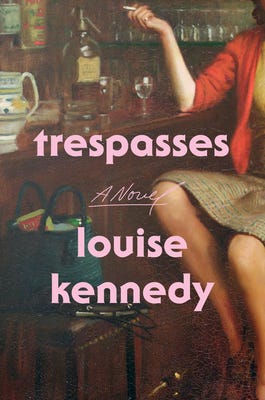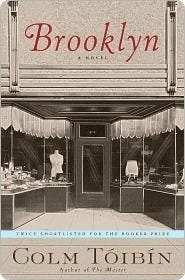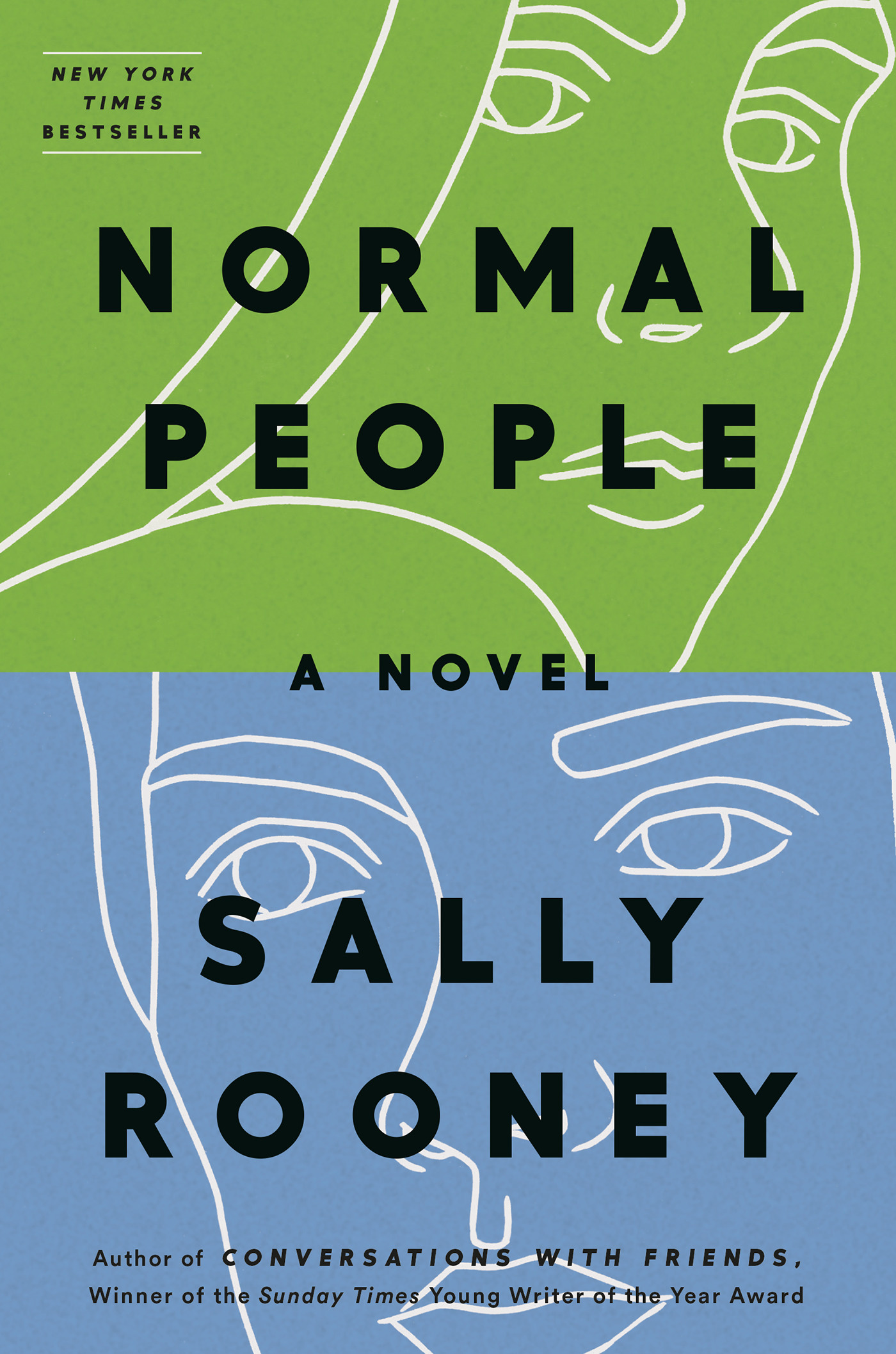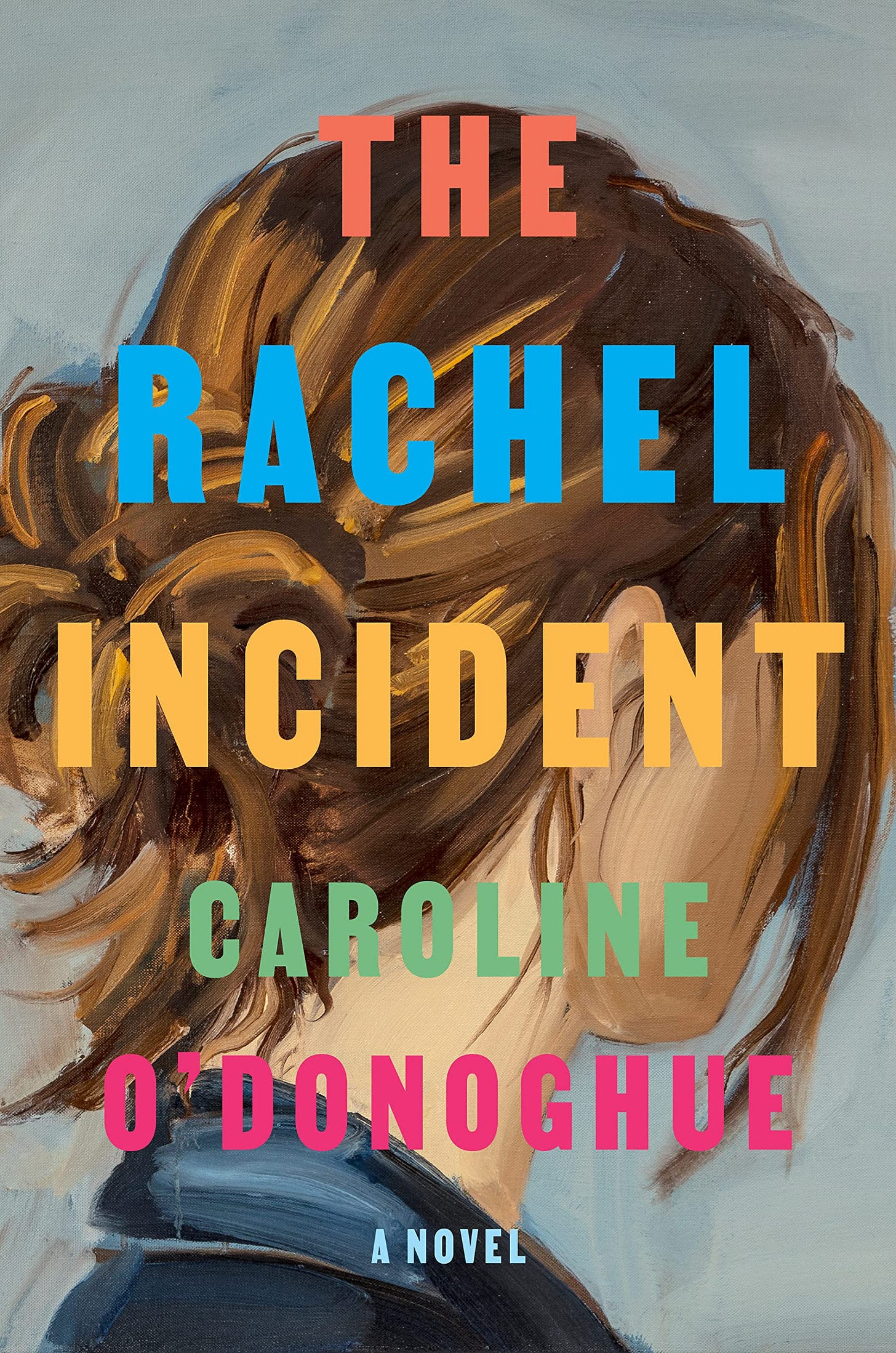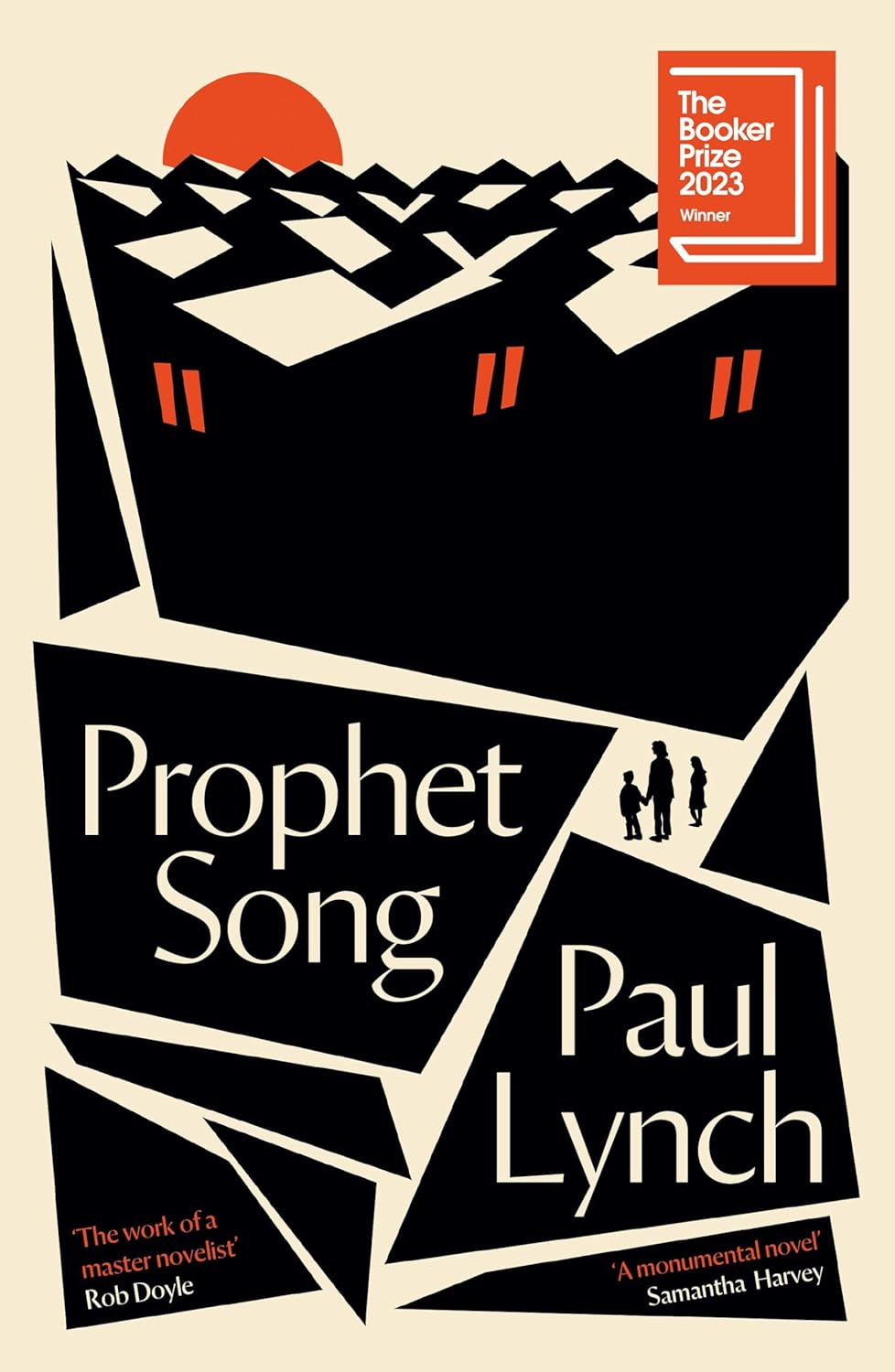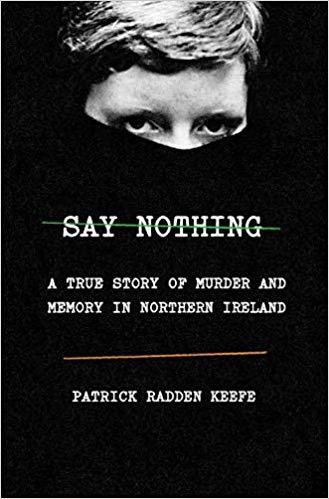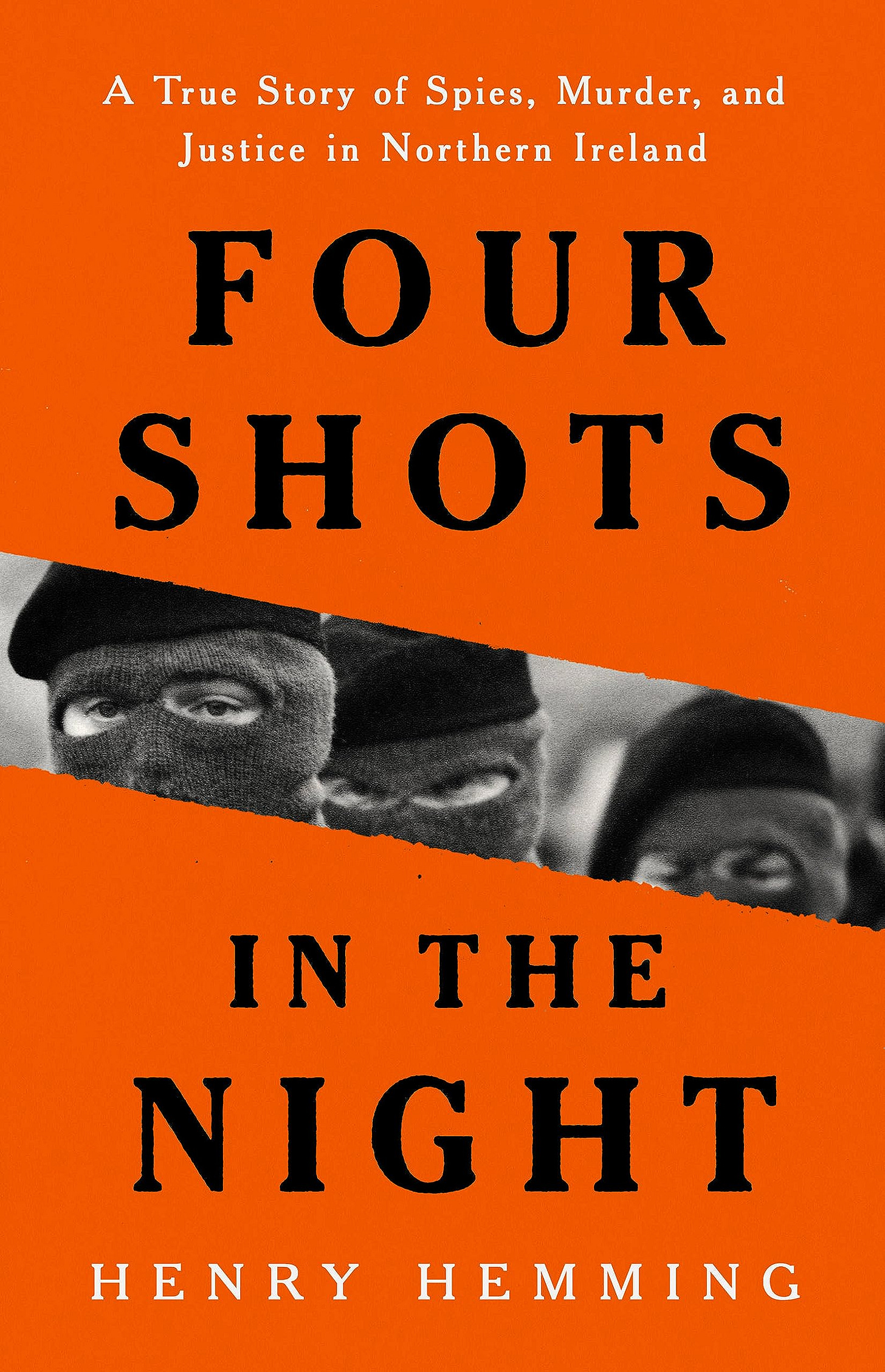Researching a place is one of my favorite parts of traveling. A few years ago, I started reading books set in the city or county where I travel. This list is inspired by other roundups of books set in a particular country or city (like the “Read Your Way Around the World” series in the NYT or The Guardian’s “Reading Cities” series).
This list includes some of my favorite books set in Ireland and Northern Ireland. It’s not intended to capture the entire Irish literary landscape—this list is limited to books I’ve read and enjoyed. Let me know if you have any other reading suggestions!
historical fiction 📖→
Foster, Small Things Like These, and So Late in the Day by Claire Keegan
Claire Keegan is the master of short stories and novellas.
Foster is set in the 1980s. It is a novella about a young girl sent to live with a couple (John and Edna Kinsella) in southeastern Ireland while her mother carries another child to term. This book is heartbreaking. As Edna Kinsella says: “If you were mine, I’d never leave you in a house with strangers.”
Small Things Like These is set in 1985, close to Christmastime. Bill Furlong, a coal and timber merchant, lives in a small Irish town with his wife and five daughters. He makes a delivery at a convent and sees something that forces him to reassess his life and the Church. (This is about the Magdalene Laundries.)
So Late in the Day: Stories of Women and Men: a collection of three short stories:
So Late in the Day: Cathal spends a weekend thinking about a woman with whom he could have spent his life.
The Long and Painful Death: A professor interrupts a writer’s seaside residency.
Antarctica: A married woman sleeps with another man who becomes increasingly possessive.
If you haven’t read Claire Keegan’s books yet (and you like literary fiction), you should. She is genuinely one of the best living fiction writers. She mainly writes short stories set in Ireland, and her prose is exceptional — words aren’t wasted here. Foster is my favorite of these three.
Rating: 5/5
Genre: Historical Fiction; Literary Fiction; Short Stories/Novellas
Page count: Foster (89 pages), Small Things Like These (128 pages), So Late in the Day (128 pages)
Audio: All of these books work well on audio if you like an Irish narrator.
Movie/TV pairings: The Quiet Girl is the movie adaptation of Foster; Cillian Murphy is currently adapting Small Things Like These.
Trespasses by Louise Kennedy
Trespasses is set in 1975 in Belfast, Northern Ireland, at the height of the Troubles. Cushla Lavery, a 24-year-old Catholic schoolteacher, falls in love with Michael Agnew, a married, older Protestant lawyer in his 50s committed to fighting for civil rights for Catholics.
This plot might sound like a straightforward forbidden love story, but Kennedy’s writing elevates their struggles. I loved this book and couldn’t put it down.
Rating: 4.5/5
Genre: Historical Fiction (Love Story)
Notable prizes/book clubs/lists: Women’s Prize for Fiction (2023); Waterstones Debut Fiction Prize (2022)
Page count: 304 pages
Audio: 8 hours 59 minutes
Brooklyn by Colm Tóibín
Brooklyn (adapted into the movie starring Saoirse Ronan) is set in 1950s Brooklyn and Ireland. Ellis Lacey leaves her small town in Ireland for New York. She works at a department store in Brooklyn and falls in love with Tony and his large family. But just as she settles in, she receives devastating news from Ireland.
Brooklyn is a great read (but it does start slow). And even if you’ve seen the adaptation or know it exists, now you can read it armed with the knowledge that you can picture Saoirse Ronan as Ellis. There is also an excellent sequel that was recently published.
Rating: 4/5
Genre: Historical Fiction (Love Story)
Notable prizes/book clubs/lists: Longlisted for the Booker Prize (2009)
Page count: 288 pages
Audio: 7 hours 50 minutes
Movie/TV pairings: Brooklyn (the movie adaptation); Past Lives
contemporary fiction 📖→
The Bee Sting by Paul Murray
The Bee Sting centers on the Barneses, a typically well-off family of four struggling in a small Irish town after the 2008 financial crash. This book is like a modern (but much more readable) The Sound and the Fury by William Faulkner. It focuses on one family, has multiple points of view for each family member, and switches to a third person in the final act.
Murray opens with the perspective of Cass, the teenage daughter, then shifts to her younger brother, PJ, and then to their mother, Imelda, and finally to their father, Dickie. The book starts slow but quickly sucks you in. I couldn’t stop reading it once I got to the mother’s point of view. Because I think it’s best to go in blind plot-wise, I won’t spoil it here. This book is long (~650 pages), but I didn’t want it to end. It’s darkly funny and full of denial and symbolic/actual deaths. After I finished this book, I spent hours in a subreddit consuming other readers’ opinions and analyses.
Rating: 5/5
Genre: Contemporary Literary Fiction - Complex Families (Tragicomic)
Page count: 650 pages
Audio: The Bee Sting is an Audible exclusive performed by a full cast of Irish actors. The audio is excellent (although it is 26 hours and 10 minutes of content).
Movie/TV pairings: Take Shelter; Fitzcarraldo; Anatomy of a Fall; Force Majeure
Normal People by Sally Rooney
Normal People follows Marianne and Connell from sensitive high schoolers in western Ireland to college students at Trinity College in Dublin. Connell’s mother works as a cleaner for Marianne’s family (who lives in a “white mansion with a driveway”). They begin a secret relationship in high school — Connell is the popular star of the soccer team, and Marianne is an awkward outsider. In college, their social situations reverse — Marriane is more sure of herself, whereas Connell struggles and feels lost in Dublin. Rooney traces their situationship over four years.
When a friend asked about this book in one of my group chats, everyone agreed that they wished they could read this novel for the first time again. This book is gorgeous. The prose and dialogue are exceptional (no wasted words or filler).
I understand how some people might feel frustrated by the situationship and miscommunication between Rooney’s leads. Normal People is definitely a sad book, but this novel also has a lot of hope. I love how Rooney captures the awkwardness and insecurities of being in high school/college while navigating love, friendship, and family dynamics. She writes with such intimacy that you feel like you know Marianne and Connell.
Rating: 5/5
Genre: Contemporary Fiction
Page count: 273 pages
Audio: This book works well on audio (7 hours 34 min)
Movie/TV pairings: Normal People (TV miniseries); Fleabag; Conversations with Friends
The Rachel Incident by Caroline O’Donoghue
The Rachel Incident is set primarily in 2010 in Cork, Ireland. O’Donoghue follows best friends Rachel and James as they navigate living together in their early twenties. They often joke that they’re like an Irish “Will and Grace”). Their lives take an unexpected turn when Rachel becomes infatuated with her married professor, leading to a series of events that test their friendship and identities.
I’ve been wary of books marketed to “fans of Sally Rooney,” as many of them don’t live up to that hype, but I really enjoyed this one. It’s not quite at Rooney’s level for me, but I definitely recommend it to readers wanting another book about the messiness of young adulthood! The characters are this book’s main driver— The Rachel Incident is mostly vibes (with a little plot).
Rating: 3.8/5
Genre: Contemporary Fiction (Messy Women)
Page count: 304 pages
Audio: This book would work well on audio (9 hr 22 min).
Movie/TV pairings: Fleabag; Frances Ha; Will & Grace
The Prophet Song by Paul Lynch
Prophet Song, which won the 2023 Booker Prize, follows Eilish Stack, a scientist and mother-of-four, in a counterfactual Ireland controlled by a repressive authoritarian state.
Overview: Prophet Song is written in the close third-person perspective of Eilish Stack. Although it has chapter and section breaks, Lynch does not use quotation marks or paragraph breaks.
In Lynch’s version of Ireland, the “National Alliance Party” has taken over and governs with an iron fist through the Emergency Powers Act, recently passed “in response to the ongoing crisis facing the state.”
The novel opens with members of the secret police, the Garda, knocking on Eilish’s door at night. The two officers are looking for Larry, her husband, a leader of the teachers’ union that has been on strike. “It’s nothing to worry about,” they assure her.
Not long after the visit, the Garda detain Larry. Eilish makes countless inquiries, but Larry has seemingly disappeared into the labyrinth of the authoritarian state. Eilish finds herself powerless. She laments to her lawyer, Michael Given: “The state is supposed to leave you alone, Michael, not enter your house like an ogre, take a father into its fist and gobble him, how can I even begin to explain this to kids, that the state they live in has become a monster?”
As Eilish deals with the fallout of Larry’s disappearance, she tries to hold her family together. The mundane realities of her domestic life sharply contrast with the curfews, airstrikes, and riots that erupt under this totalitarian regime. She scrubs kitchen countertops even as “an explosion close by shak[es] the ground so that she must hold onto the sink with two hands.” Her sister, Áine, who lives in Toronto, urges her to flee: “I wish you would listen to me, Áine says, history is a silent record of people who did not know when to leave.”
Lynch follows Eilish as she confronts these horrific realities and loses more of herself and her family to the state.
Opinion: Prophet Song is a challenging but impressive read, both stylistically and thematically. This book is a rare one that I can discuss the themes in depth without spoiling the plot, so my review is a bit longer this week!
Lynch writes Prophet Song in a kind of Joycean language—there are no quotation marks or paragraph breaks. I’ve read a few modern novels by Irish authors that take a similar approach (most recently Intermezzo and Milkman). Lynch’s writing is much easier to follow than a novel like Milkman, but the reading experience is still stressful and almost claustrophobic. The lack of quotation marks is particularly effective. Lynch blurs the distinction between dialogue and the characters’ internal thoughts.
This writing style reflects Lynch’s well-crafted themes. I’ll touch on a few themes and symbols without revealing any plot spoilers.
How do we define truth and reality?: The nationalist regime has exposed the fragility of institutions and traditions. As Larry says to Eilish, “tradition is nothing more than what everyone can agree on—the scientists, the teachers, the institutions, if you change ownership of the institutions then you can change ownership of the facts, you can alter the structure of belief, what is agreed upon.”
While the nationalists redefine political and societal truths, the characters struggle to distinguish their dreams from their waking reality. At one point, Eilish dreams of an inspector coming into her house. He tells her, “You call yourself a scientist and yet you believe in rights that do not exist, the rights you speak of cannot be verified, they are a fiction decreed by the state, it is up to the state to decide what it believes or does not believe according to its needs, surely you understand this.” She “tries to scream” and shouts, “I want to wake up, and he says, but you are awake . . . .” These dream states give the novel a surrealistic feel.
Her father’s dementia also mirrors the unsettling experience of living under this regime. Eilish describes him as anxious, with a “rheum of panic in his eyes.” Her father, Simon, is “in decline and has no awareness of his illness, sometimes it seems that he suspects something is wrong but cannot see his own mind so he turns that suspicion outward, if he’s not false then it is the world that is false, there is always someone else to blame.”
The setting of Prophet Song is also disorienting. The novel opens at night with Eilish looking out at the garden: “The night has come . . . . How the dark gathers without sound the cherry trees. It gathers the last of the leaves and the leaves do not resist the dark but accept the dark in whisper.” After the Garda officers leave, she notes: “The darkening garden not to be wished upon now, for something of that darkness has come into the house.”
Light, which can represent truth or knowledge, is depicted as faint. The sources of light mentioned are described as indirect, flickering, or even “dirty”:
“She drives through rain and the hesitating light”
“the doomed ceiling light where a moth is trapped and beats berserkly against the glass . . .”
“dirty light unmasking the room”
“the winter light uncertain”
“blue-cold light”
“red light”
“She watches the moon pass through the house, the bruised light of dawn reaching for Ben in the cot, the spoiled light reaching for Molly who is woven in sleep like a young child to her body.”
The characters are also often caught in the rain. Like in the regime, they lose their points of reference and sense of reality: “The winter rain falls lush and cold, the passing days held numb within the rain so that it seems to mask time’s passing, each day giving to faceless day until the winter is at full bloom.”
Additionally, they seem ill-equipped to deal with inclement weather. Eilish struggles to drive in the rain and, at one point, forgets to “pack their raincoats or bring an umbrella.” Larry struggles to put on his raincoat several times. In one instance, he is “fighting to get into his raincoat” and in another, “he reaches for his raincoat . . . the arm of the raincoat is inside out.” Amid unrest on the streets of Dublin, a man in a “black raincoat stumbles and the raincoat flies outward.” If Lynch is using the rain to reflect the unsettling and confusing nature of the repressive state, the characters’ lack of gear might indicate that they are ill-equipped to defend themselves against it.
Would you leave? When?: Lynch does not provide many background details for the political climate of Prophet Song. We learn that a populist right-wing movement controls the nation and that there are “nationalists” and “rebels.” However, Lynch doesn’t explain why or how this regime took control. The nationalists are painted in dull, flat colors. The Garda that appear on Eilish’s doorstep are “faceless in the dark.” A crony in the Department of Justice has “a face that does not alter from its single expression, the colorless eyes, the mouth, and what it says although the mouth does not speak . . . .”
Typically, dystopian novels ask the reader to consider if they might be complicit in such a regime. I don’t think that’s what Lynch is trying to do here. As readers, we are not asked to empathize or even understand the nationalists. Prophet Song instead asks: When do you leave? Would you? Would you fight back?
Eilish is a biochemist dedicated to identifying scientific truths, yet she has seemingly misunderstood the conditions in her own country. Eilish notes, “All your life you’ve been asleep, all of us sleeping and now the great waking begins.” Has she woken up too late? While Eilish initially dismisses her sister’s admonishment to flee, she later thinks:
History is a silent record of people who could not leave, it is a record of those who did not have a choice, you cannot leave when you have nowhere to go and have not the means to go there, you cannot leave when your children cannot get a passport, cannot go when your feet are rooted in the earth and to leave means tearing off your feet.
The end of the world is a local event: Prophet Song is more than a cautionary tale about when to leave a failing state. It is an intimate, personal account of an ordinary family living through this totalitarian state and slowly realizing the depths of its repression and harmful tactics.
Through Eilish’s experience, we see that what we take for granted—institutions, truth, rights, simply not being harmed by the state—is not guaranteed. Eilish dreams of a government officer saying, “You speak about this word rights as though you understand the word rights, show me what rights were born with man, show me what tablet they are written on, where nature has decreed it so.”
The precariousness of our institutions might be shocking, but Lynch stresses that this story is not a world-ending, biblical apocalypse of “the world devoured by fire.” As Eilish observes, “it is vanity to think the world will end during your lifetime in some sudden event.”
Our world feels local, but brutal regimes take over countries and environmental catastrophes occur throughout the world on a never-ending cycle. Our world persists, and nature is indifferent to man’s actions. Eilish’s son, Bailey, warns her about a symbolic worm: “The world is turning, he says, it is gaining power, the worm does what it likes.” But he also notes, “the worm is a fact, he says, it doesn’t care whether you like it or not.”
What is the prophet song? The prophet sings “that the world is always ending over and over again in one place but not another and that the end of the world is always a local event, it comes to your country and visits your town and knocks on the door of your house and becomes to others but some distant warning, a brief report on the news, an echo of events that passed into folklore . . .”
Criticisms: While this novel is impressively crafted and thematically layered, some readers might have issues with the overall pacing and bare-bones world-building. The last fifty pages felt a bit rushed compared to the gradual pacing of the rest of the novel.
Lynch includes limited background information for the characters and the political climate of Prophet Song. As I’ve noted above, I think this structure allows the reader to identify with the victims rather than the perpetrators. However, Lynch also provides scant information on Eilish and her family, and I think it might be difficult for some readers to care about them. That said, I do think this minimalist, allegorical structure is the overall point of the novel and is well-executed.
Overall: I wouldn’t recommend Prophet Song to everyone. The structure is somewhat unwieldy, and the topic is quite dark. However, I would highly recommend it to someone who likes speculative literary fiction.
Rating: 4.7/5
Genre: Literary Fiction (Dystopia/Speculative Fiction)
Notable prizes/book clubs/lists: Booker Prize Winner (2023), Longlisted for Dublin Literary Award (2025)
Page count: 259 pages
Audio: 8 hours 32 minutes
Movie/TV pairings: Never Let Me Go
nonfiction 📖→
Say Nothing: A True Story of Murder and Memory in Northern Ireland by Patrick Radden Keefe
Say Nothing follows a number of narratives during the Troubles in Northern Ireland from the 1970s to 2010s. Keefe follows multiple storylines and grapples what is collective memory, what is terrorism. It’s one of the best nonfiction books I’ve ever read.
Rating: 5/5
Genre: Nonfiction
Page count: 441 pages
Audio: 14 hours 40 minutes
Movie/TV pairings: Say Nothing (Hulu/FX adaptation)
Four Shots in the Night: A True Story of Spies, Murder, and Justice in Northern Ireland by Henry Hemming
Four Shots in the Night is set in Northern Ireland during the Time of Troubles in the 1980s. Hemming explores the role that intelligence and espionage played in the struggle between the British forces and the Irish Republican Army. One British intelligence officer estimated that one in three IRA leaders “was either close to a British agent” or was actually “being run by a handler or case officer.”
The book opens with a British agent approaching Frank Hegarty, a midlevel IRA member, in the early 1980s. Hegarty agreed to inform and eventually shared a key piece of intelligence with the British about three huge weapons shipments that the IRA received from Gaddafi-controlled Libya. The British authorities struggled with when to act on information shared by informants. Should they act on it and expose the informant? Or let their informant stay undercover?
In the end, the Irish police and British forces seized the arms haul in early 1986, and Hegarty fled to England. Hegarty was later lured back to Derry by Martin McGuinness (a top IRA leader) under the assurances that he would not be killed. Hegarty’s body was found later in 1986, in broad daylight, with duct tape over his eyes.
Hemming reconstructs his murder and explores the possibility that another British agent (Freddie Scappaticci, codenamed “Stakeknife”) pulled the trigger. Scappaticci was one of the leaders of the IRA’s “Nutting Squad,” which punished British informers, and was the highest-placed British spy in the IRA.
Four Shots in the Night is one of the best books I have read on the Troubles since Patrick Raden Keefe’s Say Nothing. It complements Say Nothing well. While Keefe focuses on Belfast and the gregarious IRA leader Gerry Adams, Hemming centers his novel on Derry and the feared IRA leader turned politician Martin McGuinness. This book reads like a thriller and touches on the complex legal landscape of this period—no formal war was declared. There were open criminal cases against members of the IRA and British armed forces, and the rules of conduct (like a British spy murdering another spy) were unclear.
I recommend this to anyone who likes true crime or wants something else to read after finishing Say Nothing.
Rating: 4.3/5
Genre: Nonfiction (Crime; Historical)
Page count: 368 pages
Audio: 9 hours 4 min






